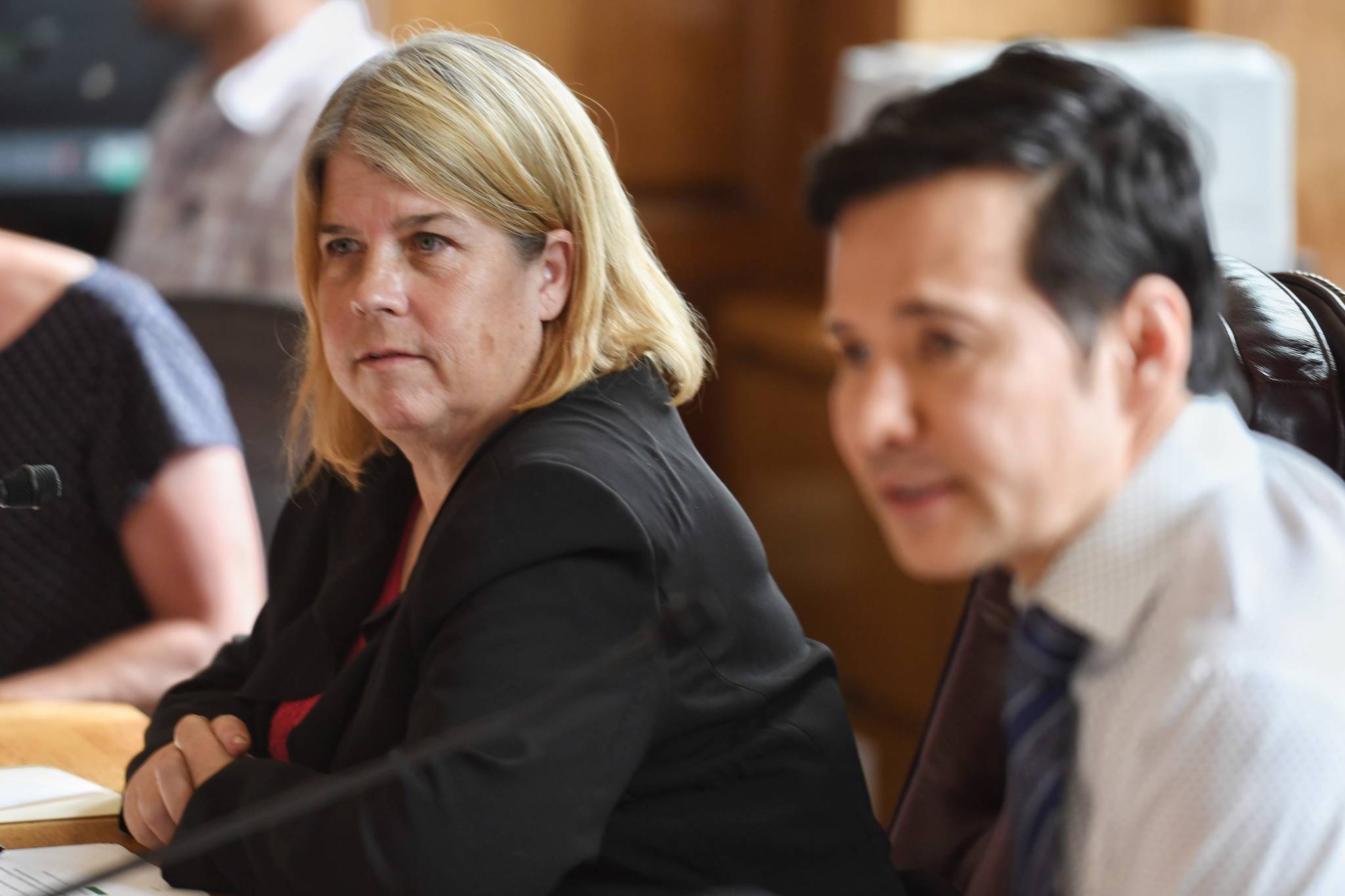Bankers, home builders, Alaska Natives, health care professionals, nonprofit leaders and more all had one message for the Legislature: Override the governor’s vetoes.
During Tuesday afternoon’s House Finance Committee meeting, there were almost two hours of invited testimony delivered in support of overriding Gov. Mike Dunleavy’s 182 line-item budget vetoes totalling over $400 million. At 11:30 a.m. Wednesday, a joint session of the House and Senate is scheduled for consideration of veto overrides.
“I can’t put into words how serious this is and how important it is to override the governor’s veto package,” said Steve Lundgren, who spoke on behalf of the Alaska Bankers Association.
He said while the association generally favors smaller government, it does not support governor’s approach — more than $400 million in vetoes — to the Legislature-approved budget is the best option.
Lundgren said slashes to support for the University of Alaska and school bond debt reimbursement could hurt bond ratings and banks throughout the state.
[Live: Coverage of Tuesday’s talk of ‘the sweep’ and veto overrides]
Rep. Tammie Wilson, R-North Pole, co-chair of the committee, asked if spending at a defecit hurts bond ratings.
Lundgren said over a long enough timeline it could but in the immediate future it would not be as damaging as the the governor’s vetoes.
“We do believe that a step-down approach would be looked at favorably by the rating agencies, but the significant decrease will create so many unknowns, and I think that’s what got the attention of rating agencies,” he said.
Similarly, Jeff Twait of the “right-leaning” Alaska State Home Building Association voiced his organization’s support for a veto override out of concern that the vetoes could cause an economic downturn.
[Economists say vetoes could cause job losses]
Diane Kaplan, CEO and President for the Rasmuson Foundation, and Laurie Wolf, President and CEO of the Foraker Group, each called in to say that the vetoes would undermine their efforts as nonprofits.
Wolf said while not all the nonprofits with which the Anchorage-based Foraker Group works receive state funding, many would still be impacted by the vetoes. Other entities, such as homeless shelters, would directly see less funding as a result of the vetoes.
“Our most vulnerable will be the most harmed,” Wolf said.
Kaplan said the Rasmuson Foundation has generally tried to stay neutral while partnering itself with the state on efforts it supports, such as providing one-third of the Alaska State Council on the Arts’ funding. However, she was insistent the governor’s vetoes must be overridden.
She said anyone who believes that the private sector will plug the funding gap created by the vetoes is fooling themselves.
“It’s impossible,” Kaplan said.
She also said the foundation will have to rethink the efforts — such as supporting endeavors to decrease homelessness — in light of the state’s lack of committed funds.
“We feel our very ability to do this work will be impacted by these vetoes,” Kaplan said.
University of Alaska President Jim Johnsen was the first to call in to the meeting to again raise concerns that losing $130 million in state funding — a 41-percent cut — would be “devastating” for the university.
[Live: Governor announces vetoes, legislators and University of Alaska responds]
He said a conservative estimate puts the number of layoffs that would be cause by the vetoes at 1,300, but there would likely be more than that. That’s because the university anticipates a reduction in tuition revenue as a result of program and cuts and possibly campus closures that would result from lost funding.
“I would ask your consideration of the override,” Johnsen said. “This is very disruptive and an unprecedented interruption in investment in higher education.”
• Contact reporter Ben Hohenstatt at (907)523-2243 or bhohenstatt@juneauempire.com. Follow him on Twitter at @BenHohenstatt.

